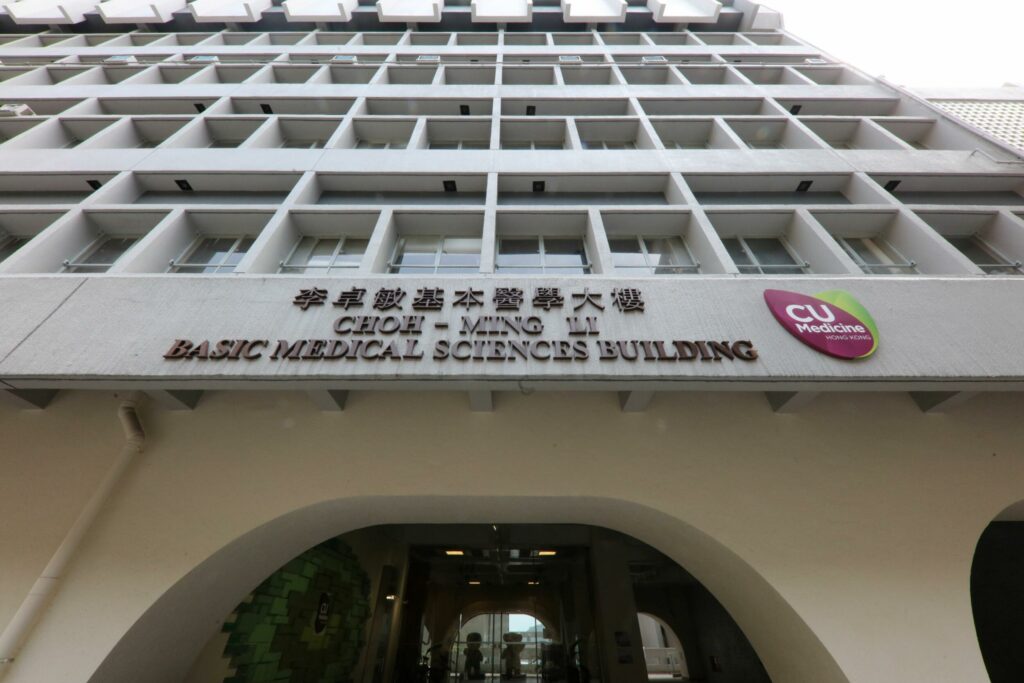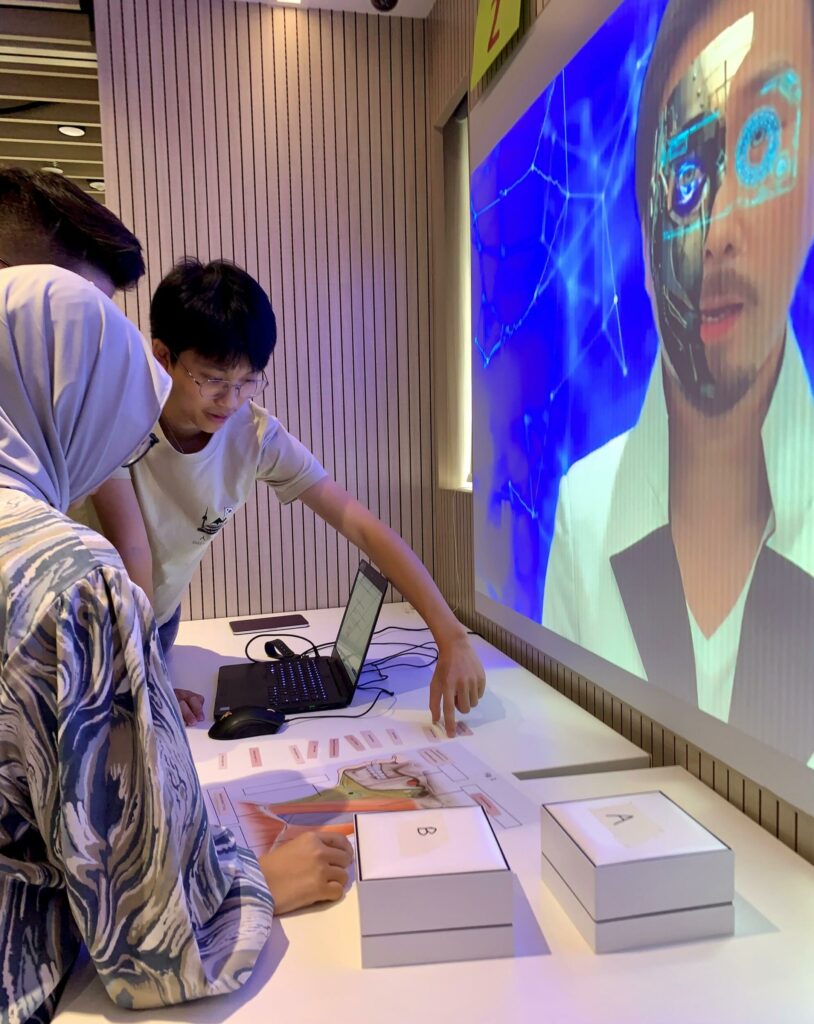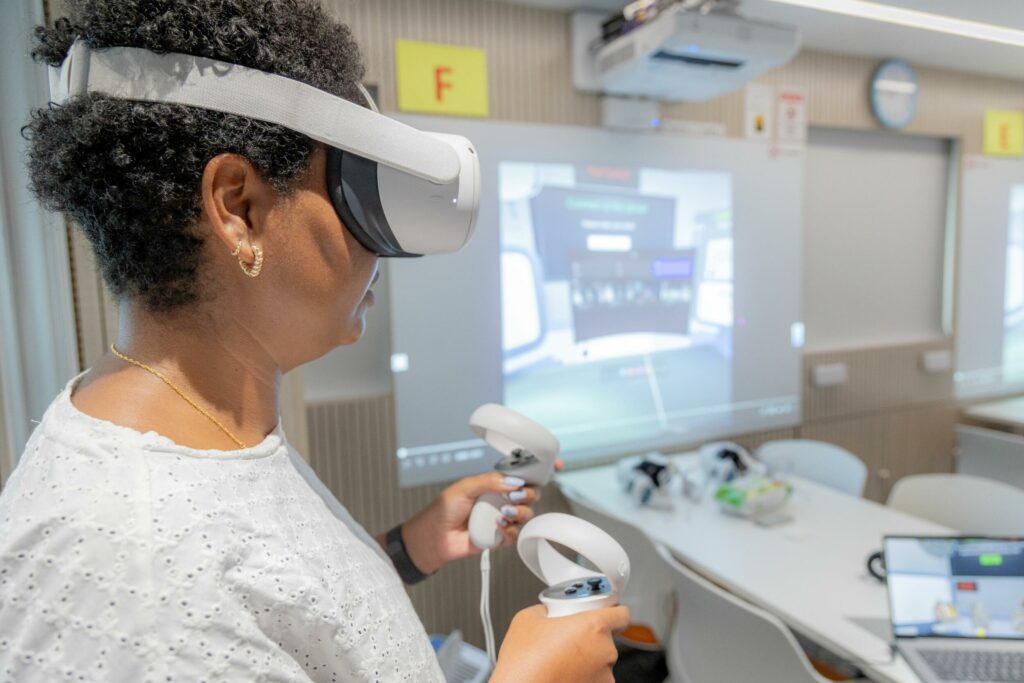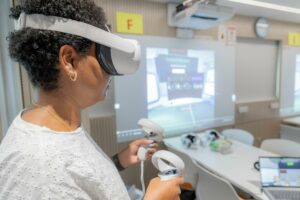CUHK
News Centre
CUHK receives HK$30 million donation from Mr Li Ka-shing to further enhance artificial intelligence in medical education
The Chinese University of Hong Kong (CUHK) received a generous donation of HK$30 million from Mr Li Ka-shing to support the Faculty of Medicine (CU Medicine)’s wider application of artificial intelligence (AI) in medical teaching and research. Together with the same amount of funding matched, CU Medicine will invest a total of HK$60 million to enhance the use of AI in medical education. The goal is to equip CU Medicine’s staff and students as the next generation of clinicians with the readiness to understand, apply and develop AI-powered tools in clinical practice, and get prepared for the ethical challenges associated with the application of medical AI tools.
It is the hope of CU Medicine and Mr Li Ka-shing that this donation will help Hong Kong’s medical education keep pace with rapid technological advances, and continue to maintain its world-class healthcare standards and global leadership.
Equipping future clinicians with AI literacy and competencies
AI is increasingly used in the healthcare sector. Clinical diagnosis, treatment planning, drug development and personalised medicine have all been enhanced by the emergence of AI, resulting in better disease control and patient care.
To maintain world-class standards of teaching and research, CU Medicine has been actively strengthening the application of AI in recent years, including medical imaging analysis, AI-assisted robotic surgery, and biomarker discovery, as well as risk prediction and control of epidemic diseases through bioinformatics.
With the generous donation from Mr Li Ka-shing, CU Medicine will roll out an “AI in Medical Education” scheme to further the integration of modern AI tools in delivering CUHK’s medical curriculum, and expose students to the applications of AI in clinical medicine and health system management. The scheme comes in two parts:
I) Training for students
– Smart learning with AI: guided learning with a problem-based, case-powered chatbot.
This includes the development of an in-house AI-powered chatbot prototype for teaching. Students are guided through clinical cases for multidisciplinary learning. The chatbot allows students to have individualised learning journeys; and its involvement of audio-visual aid will better support the students’ learning.
– Exposing students to AI in clinical medicine and health system management
By integrating AI into the medical curriculum, the scheme aims to give the next generation of clinicians a solid understanding of the core concepts and techniques of AI, allowing them to acquire the skills commonly used with the technology, become familiar with various ways AI can be applied in medicine, and appreciate and address the ethical, legal, and social issues of AI in healthcare, including data privacy and the potential impact on doctor-patient relationship.
Students will also be encouraged to participate in research projects or develop innovative AI applications to address healthcare challenges and learn to collaborate effectively with experts from different fields, such as computer scientists and engineers to develop and implement AI solutions in healthcare.
II) Capacity building of faculty members
The scheme aims to enhance faculty members’ knowledge of and competencies in AI and its applications, enabling them to consider integrating AI into their teaching, research, and professional practice. Faculty staff will be given full support in incorporating AI concepts and techniques into existing courses and developing new AI-focused programmes, ensuring that students are well prepared for the AI-driven future.
Effectively implementing the AI curriculum will require a robust infrastructure that supports learning, research and practical applications. In this connection, CU Medicine will establish a digital lab to provide computing resources, AI-related software and tools, diverse and high-quality medical datasets (e.g., medical images and health records) for students to practise with and gain experience in working with healthcare data. To ensure that staff and students keep abreast of the latest developments in AI and its applications in medicine, the Faculty will also establish partnerships and collaborations with world leaders in AI, in addition to providing conferences, workshops and training.
Upholding Hong Kong’s world-class standards in medical education and research
Professor Francis KL Chan, Dean of Medicine at CUHK, expressed his heartfelt gratitude to Mr Li Ka-shing. “With the support of Mr Li, CU Medicine will be able to strengthen AI training in medical education, equip the new generation of clinicians with the knowledge and ability to understand, apply and develop the work of medical AI, help them anticipate the challenges and ethical issues that may arise, and propose feasible solutions to address them, so that the development of AI and medicine can be complementary to each other. We are determined to improve human health and uphold Hong Kong’s world-class standards in medical education and research excellence, so that Hong Kong’s healthcare system will continue to be a source of pride for every citizen.”
Mr Li Ka-shing remarked, “Without question, AI is transforming the world, and it is important to bolster applied AI meaningfully in health and life-enhancing research, medical curriculum and services that will lead to future new therapies and treatments to improve health and quality of life. We are pleased to support these timely intertwined initiatives at both medical schools in Hong Kong.”
Over the years, Mr Li Ka-shing has supported the development of medical education and research at CUHK. As early as 2005, Mr Li made a substantial donation to support the establishment of the Li Ka Shing Institute of Health Sciences at CUHK. Since then, Mr Li has continued to give generous support to CU Medicine including a donation of HK$150 million last year to support the development of biomedical science and technology research. These donations have been an important source of support for medical education, research and innovation.
CU Medicine advocates smart teaching and innovation in modern education, and has a strong track record in developing in-house teaching related projects including but not limited to new technologies (AI, virtual and augmented reality, portable 3D scanning), courseware or platforms that enhance students’ learning experiences (animated or simulation-based courseware, micromodules for blended learning and flipped classroom, courseware with gamification components, etc.). Some of these projects were transformed to encouraging outcomes such as student-initiated start-ups or outputs being recognised internationally at academic and educational conferences, and in local schemes such as entrepreneurship, innovation and technology competitions, or Hong Kong Science and Technology Parks’ ideation and incubation programmes. CU Medicine emphasises student-centred, personalised medical training to unleash the potentials of students and engage students as partners in the development of teaching projects.

CUHK receives a generous donation of HK$30 million from Mr Li Ka-shing to support the CU Medicine’s wider application of artificial intelligence (AI) in medical teaching and research. Together with the same amount of funding matched, CU Medicine will invest a total of HK$60 million to enhance AI in medical education. The goal is to equip the Faculty’s staff and students with the readiness to understand, apply, or develop AI-powered tools in clinical practice.
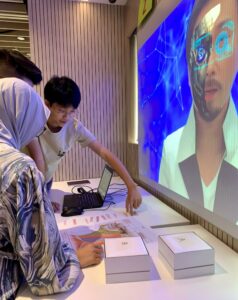
CU Medicine will roll out an “AI in Medical Education” scheme. This includes the development of an in-house AI-powered chatbot prototype for teaching. Students are guided through clinical cases for multidisciplinary learning. The chatbot allows students to have individualised learning journeys; and its involvement of audio-visual aid will better support the students’ learning.


